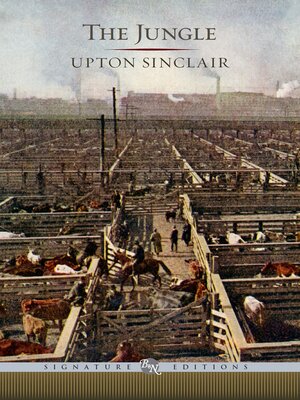
Sign up to save your library
With an OverDrive account, you can save your favorite libraries for at-a-glance information about availability. Find out more about OverDrive accounts.
Find this title in Libby, the library reading app by OverDrive.



Search for a digital library with this title
Title found at these libraries:
| Loading... |
It is the dawn of the twentieth century. Two young Lithuanian immigrants, Jurgis and Ona, hold their wedding celebration in Packingtown, the heart of Chicago's meat packing district. According to custom, departing guests should give money to help pay for the party and start the newlyweds off in life. But many guests walk out leaving nothing. Ona worries about the couple's debts, but Jurgis calms her, saying, "I will work harder."
Strong and confident, Jurgis begins a job in a meatpacking plant, where he bears the twelve-hour work days, the repellent and dangerous labor conditions, and the pitifully low pay. But when his family is cheated in a housing swindle, when his father is forced to turn over one-third of his pay to the man who hired him, and when a sprained ankle costs Jurgis his job, the American Dream that inspired him veers into nightmare. And worse is yet to come.
Upton Sinclair wrote The Jungle after working undercover in Chicago's meatpacking district for seven weeks. His aim was to draw America's attention to the plight of exploited immigrant workers and usher in a new age of socialism. Indeed, the public was horrified, but not by workers' suffering. Rather, Sinclair's graphic descriptions of the industry's filthy conditions and use of diseased animals quickly led to passage of the Pure Food and Drug Act in 1906.






